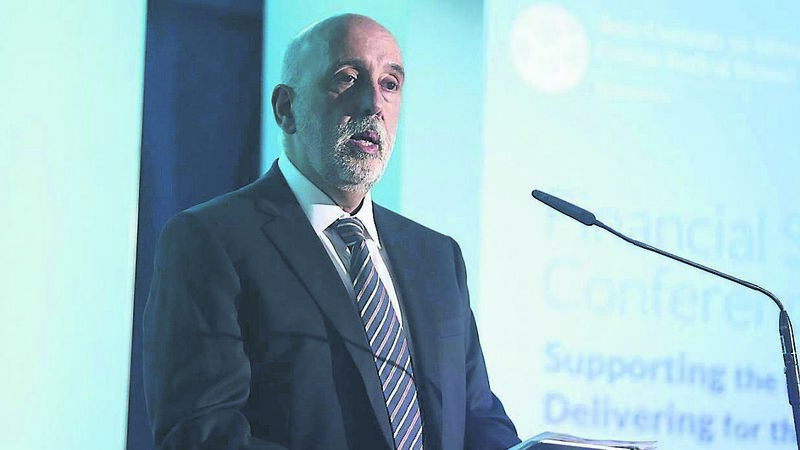Central Bank governor rejects mortgage criticism

Central Bank Governor Gabriel Makhlouf rejects claims that the organisation has failed mortgage holders whose debt is owned by vulture funds.
THE Governor of the Central Bank has rejected claims that the organisation has failed mortgage holders whose debt is owned by vulture funds.
In a recent visit to Cork, the Governor of the Central Bank of Ireland, Gabriel Makhlouf, discussed criticism over the treatment of those whose loans were sold to vulture funds.
“The notion that we are ignoring this or that we don’t care? Well, I completely reject that,” Mr Makhlouf told The Echo.
This comes as advocates for mortgage holders told the Oireachtas Finance Committee that the regulator has “failed miserably” to protect these people.
Co-founder of the Irish Mortgage Holders Organisation David Hall told the finance committee: “The Central Bank has a key role in protecting consumers and they have failed miserably.
“The Central Bank is conflicted in protecting banks and vultures and is too caught up in their regulation to be independent in trying to protect consumers.
“Vultures have, and continue to, torture those in mortgage arrears. Many have been engaging with, or should I say trying to engage with, vultures to try and come to some resolution with their mortgage arrears.”
Cork People Before Profit–Solidarity TD, Mick Barry, has also campaigned for those whose mortgages are held by vulture funds.
“People who have loans owned by vulture funds are in practice, treated differently than other mortgage holders. The Central Bank and successive right-wing governments have allowed this to be the case. Instead of denying the Bank’s past actions, the Governor should take action now to improve the rights of these vulnerable householders,” Mr Barry said.
Speaking on this, Mr Makhlouf said: “I was at the select committee at the Oireachtas with a couple of my colleagues, answering questions on this topic. The short answer is that the protections that exist for mortgage holders who have got loans from the bank and for those who have loans from non-banks, those protections are the same.
“We have been working with and talking to non-banks in particular, to understand exactly what it is they are doing right now with the increase in interest rates that we are seeing elsewhere.
“We do care, there are expectations out there for how these organisations should behave and what rights consumers have. At the end of the day, the setting of interest rates is something for the banks and on banks but there are protections in existence that we expect them to follow.”
The Central Bank Governor highlighted the key issues facing the Irish economy whilst meeting with local businesses and attending conferences at UCC.
The visit is one in a series of local events that the Governor will attend around Ireland this year.
“One of the things that I think is important for the central bank to do is to understand is how the economy, as a whole, is working, not just the financial sector and the banks,” he said. “You can sit at your desk and look at data, but one of the bet ways of doing that is going around the country and listening to people. My visit is primarily to listen to businesses operating in Cork.
“There was some discussion about how we compare to other countries, particularly the UK. I think we are in a much better position.”
The main issues highlighted in the meeting included inflation, housing for employees and the extent of confidence in the Irish economic sector.
Inflation in the Irish economy unexpectedly rose to 8% in February of this year, up from 7.5% on the previous month, according to the Central Statistics Office in the latest harmonised index of consumer prices (HICP).
“The main driver of inflation in the euro area has come from two main drivers,” Mr Makhlouf said.
“The first driver was the fact that the supply chains could not cope with increased demand once lockdown was reversed. Demands for goods, and services, shot up. A lot of what was demanded for was coming out of Asia particularly.
“China was still in covid lockdown, that demand could not be met and that ushed up prices. It also impacted energy, but the Russian war has made that worse. The combination of the supply chain blockages and the war have been big drivers.”
Since July of 2022, the ECB has embarked on an aggressive strategy of monetary tightening which has seen interest rates go from 0% to 3%.
“At the ECB, we have had to respond by moving from having a policy with very loose rates, we had very low rates, in fact we had negative rates, to a policy that aimed at inflation back to our target of 2%. It has come down slightly, and we are expecting it come down more this year,” Mr Makhlouf said.







 App?
App?


